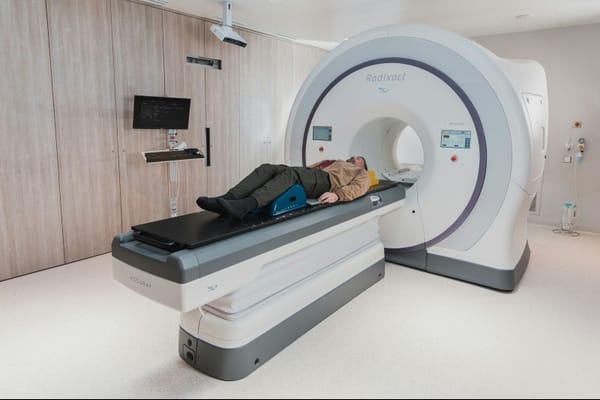Quantum computing is revolutionizing drug discovery by enabling unprecedented speed and accuracy in developing new therapies, particularly in the quest for longevity. This cutting-edge technology allows for precise molecular simulations, rapid screening of chemical libraries, and optimization of drug candidates, promising significant advancements in extending human lifespan and improving health outcomes.
Quantum Computing Advantages
Quantum computing offers several advantages over classical computing, particularly in the realm of drug discovery and longevity research. One of the primary benefits is its ability to simulate molecular interactions with unprecedented accuracy. Traditional computers struggle with the complexity of these simulations due to the vast number of variables involved. Quantum computers, however, can handle these complexities more efficiently, allowing for more precise modeling of chemical reactions and interactions at the molecular level[2][4].
Another significant advantage is the speed at which quantum computers can process information. Quantum bits, or qubits, can exist in multiple states simultaneously, unlike classical bits that are either 0 or 1. This property, known as superposition, enables quantum computers to perform many calculations at once, drastically reducing the time required for tasks such as screening chemical libraries and optimizing drug candidates[4]. This acceleration is crucial for drug discovery, as it can shorten the development timeline for new therapies, bringing life-saving treatments to market faster[1][2].
Quantum computing also enhances the potential for personalized medicine. By integrating quantum computing with artificial intelligence, researchers can analyze large, complex biological datasets more effectively. This integration allows for the identification of new disease pathways and the development of individualized treatments based on a person's genetic profile[3]. Such personalized approaches are particularly promising in the field of longevity research, where tailored interventions could significantly impact aging processes and age-related diseases[3].
Moreover, quantum computing's ability to manage and interpret data across multiple scales simultaneously is invaluable. Biological processes within living organisms involve interactions at various levels, from cells to organs to entire systems. Quantum computing can handle this multi-scale complexity, providing deeper insights into how these interactions contribute to aging and disease[3]. This capability is essential for developing comprehensive strategies to combat age-related conditions and improve overall healthspan.
In summary, quantum computing's advantages in accuracy, speed, and data handling make it a transformative tool in drug discovery and longevity research. Its ability to simulate complex molecular interactions, accelerate drug development, and enable personalized medicine holds great promise for extending human lifespan and enhancing health outcomes[1][2][3][4].
Sources:
Recent Breakthroughs in Drug Discovery
Recent breakthroughs in drug discovery have been significantly influenced by the integration of quantum computing, artificial intelligence (AI), and advanced molecular simulation techniques. One notable development is the work by Gero, a biotech company specializing in aging and longevity, which has demonstrated the feasibility of using quantum computing in drug design. Gero's hybrid quantum-classical machine-learning model bridges classical and quantum computational tools to create innovative chemical structures for potential medications, marking a significant advancement in the industry[1].
Another breakthrough comes from Insilico Medicine, which has integrated quantum computing into the study of living organisms to provide greater insight into biological processes like aging and disease. Their research highlights the potential of quantum generative adversarial networks in generative chemistry, which can help researchers advance new understandings of human health and develop personalized interventions for a broad range of diseases and age-associated processes[3].
Microsoft and Quantinuum have also made strides in quantum computing, announcing new technology designed to minimize inaccuracies associated with quantum computing algorithms. This innovation aims to boost the reliability of quantum computing, which is crucial for applications in healthcare, including drug discovery. Their system has advanced quantum computing beyond the Noisy Intermediate-Scale Quantum (NISQ) level to a more resilient and error-free stage, enabling more accurate simulations of molecular interactions[4].
These advancements underscore the transformative potential of quantum computing in drug discovery, particularly in the field of longevity research. By enabling more precise molecular simulations, rapid screening of chemical libraries, and optimization of drug candidates, quantum computing is accelerating the development of new therapies that could significantly extend human lifespan and improve health outcomes[1][3][4].
Sources:
Impact on Longevity Research
Quantum computing is poised to revolutionize longevity research by providing unprecedented capabilities in understanding and manipulating the biological processes underlying aging and age-related diseases. One significant impact is the ability to simulate molecular interactions with high precision, which is crucial for identifying potential therapeutic targets and designing drugs that can modulate these targets effectively[2]. This capability allows researchers to explore complex biochemical pathways involved in aging, potentially uncovering novel interventions that could slow down or even reverse the aging process.
The integration of quantum computing with artificial intelligence (AI) further enhances its impact on longevity research. AI-driven models can analyze vast and complex biological datasets to identify patterns and correlations that were previously undetectable. When combined with the computational power of quantum systems, these models can provide deeper insights into the mechanisms of aging at the cellular and molecular levels[3]. For instance, Insilico Medicine's research demonstrates how quantum computing can be used to study living organisms, offering new perspectives on how aging and disease processes are interconnected[3].
Moreover, quantum computing's ability to handle and interpret data across multiple scales is particularly valuable in longevity research. Biological processes span various levels, from individual cells to entire organs and systems. Quantum computing can manage this multi-scale complexity, enabling researchers to develop a holistic understanding of how different biological systems interact and contribute to aging[3]. This comprehensive approach is essential for devising effective strategies to combat age-related conditions and improve overall healthspan.
Recent breakthroughs highlight the practical applications of quantum computing in longevity research. For example, Gero's hybrid quantum-classical machine-learning model has shown promise in creating innovative chemical structures for potential medications targeting aging and longevity[1]. Similarly, advancements by Microsoft and Quantinuum in minimizing inaccuracies in quantum computing algorithms enhance the reliability of simulations, which is critical for developing precise and effective anti-aging therapies[4].
In summary, the impact of quantum computing on longevity research is profound, offering new tools and methodologies to explore and manipulate the biological processes of aging. By enabling precise molecular simulations, integrating AI for advanced data analysis, and managing multi-scale biological complexities, quantum computing holds the potential to significantly advance our understanding of aging and pave the way for groundbreaking therapies that could extend human lifespan and enhance health outcomes[1][2][3][4].
Sources:
Challenges and Future Potential
Despite the promising advancements in quantum computing for drug discovery and longevity research, several challenges remain. One of the primary obstacles is the inherent complexity and instability of quantum systems. Quantum computers are highly sensitive to environmental factors, which can introduce errors and reduce the reliability of computations. This issue, known as quantum noise, has been a significant barrier to achieving consistent and accurate results. However, recent innovations by companies like Microsoft and Quantinuum aim to minimize these inaccuracies, moving quantum computing beyond the Noisy Intermediate-Scale Quantum (NISQ) level to a more resilient and error-free stage[4].
Another challenge is the scalability of quantum computing. Current quantum computers operate with a limited number of qubits, which restricts their ability to handle large-scale problems. To fully realize the potential of quantum computing in drug discovery and longevity research, machines with tens of thousands or even millions of qubits will be necessary. This requires significant advancements in both hardware and software, as well as the development of new algorithms that can efficiently utilize these larger systems[4].
The integration of quantum computing with existing technologies also presents a challenge. Combining quantum systems with classical computing and AI requires sophisticated hybrid models that can seamlessly transition between different computational paradigms. Gero's hybrid quantum-classical machine-learning model is a step in this direction, but further research and development are needed to optimize these hybrid approaches and make them more accessible to researchers and pharmaceutical companies[1].
Looking to the future, the potential of quantum computing in drug discovery and longevity research is immense. As quantum technology continues to evolve, it is expected to revolutionize the way we understand and treat age-related diseases. The ability to perform highly accurate molecular simulations and analyze complex biological data will enable the development of personalized therapies tailored to individual genetic profiles, significantly improving health outcomes and extending human lifespan[3].
Moreover, the collaboration between academia, industry, and government will be crucial in driving the adoption and advancement of quantum computing. Regulatory recognition of aging as a treatable condition could unlock public funding and accelerate research efforts, leading to the development and commercialization of effective longevity therapeutics[7]. As more stakeholders invest in this field, the pace of innovation will likely increase, bringing us closer to a future where age-related diseases can be effectively managed or even prevented.
In summary, while challenges such as quantum noise, scalability, and integration remain, the future outlook for quantum computing in drug discovery and longevity research is highly promising. Continued advancements in technology, coupled with collaborative efforts across sectors, will pave the way for groundbreaking therapies that could transform our approach to aging and significantly enhance human healthspan[1][3][4][7].
Sources:















Member discussion